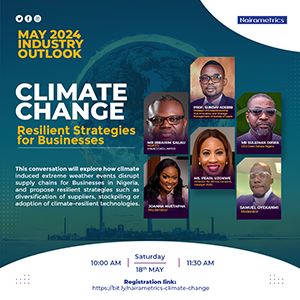In roughly eight years from today, the world will once again gather with a sense of common purpose to measure progress made in achieving the sustainable goals set across environmental, social, and economic benchmarks for 2030. The world is not new to these kinds of summits and conferences, where nations and corporations make lofty commitments to common goals and in pursuit of climate agendas. Despite the pledges, a facts check suggests collective actions have fallen off desired targets. Perhaps, it is the case that to achieve meaningful levels of sustainability, we must all truly understand why sustainability matters.
Etymologically speaking, the word sustainability derives from the Latin sustinere, or better yet, tenere, which means to hold, support, maintain or endure. Its modern usage refers to principles or actions directed at utilizing natural resources in ways that do not yield negative impacts on the planet and people. As a term and concept, sustainability is often traced to the late 20th century in the work of the environmentalist Donella Meadows although it must be said that the idea can also be found in ancient secular philosophies, the Jewish or Christian story of Adam and Eve being instructed to tend the Garden of Eden, and in the African philosophy of Ubuntu “I am because you are”.
With the advancement in science and through academic research, sustainability has been better dimensioned using the three pillars of economic (profits), environmental (planet), and social (people) and several frameworks such as 2030 Climate & Energy Framework, Environmental Product Declarations (EPD) and Science-based Targets to help reduce depletion of non-renewable resources, curb carbon emission, and encourage waste management.
Today, the sad realities of rising global temperatures, ecological degradation, deforestation, adverse weather phenomenon, and flooding are inescapable and undeniable consequences of the changing climate. Yet, there seems to be a lack of urgency in actions taken to reverse negative trends. According to CDP Europe as of March 2021, under 10% of European companies had targets to align with well-below 2-degree Celsius temperature even though achieving the 1.5-degree Celsius temperature goal requires at least 65% of companies to align fully with the Paris agreement by 2030.
In my view, the challenge of reducing carbon footprints, achieving global net-zero emission, and ensuring environmental sustainability is not just about increasing awareness about the impact of global warming. It is also about finding the right incentives and situating conversations on the importance of suitability around it. Therefore, to move the needle in any meaningful way, there should be an emphasis on why sustainability matters, not just as a deterrent but providing a business case for investing in sustainable practices.
One of the most compelling arguments for the adoption of sustainable practices across different value-chains is that businesses (and other economic agents) that engage in such can sustain themselves in the long run by ensuring future benefits from the continued availability of inputs, and a healthy customer base are not exchanged for short term top-line or bottom-line expansion. In his fable about a goose that laid golden eggs, Aesop a slave in ancient Greece who lived around 620 and 564 BCE, told the story of a man that killed his goose in hopes of collecting all the gold presumably inside the bird at once, rather than wait daily for the goose to lay its golden eggs. To the uttermost disappointment of the man, there was no gold inside his bird.
This kind of short-sightedness can be attributed to corporates, individuals, and nations that do not care about how their actions could be depleting resources they would need in the future to survive. A real-life example of this tragedy is the fishing industry, which is risking empty oceans by 2048, according to a study by Marine ecologist Boris Worm, if the current pace of overfishing and water pollution is not reversed.
Another important consideration is that the circular economy is cheaper long-term and creates tangible value for adopters. UNCTAD defines the circular economy as entailing “markets that give incentives to reusing products, rather than scrapping them and then extracting new resources.” This includes practices such as utilizing eco-friendly designs, recycling waste, and shifting to cleaner energy sources. Granted that initial cost of transitioning to such sustainable systems might be significant, but over the long run, the gains realized tend to outstrip initial investments made. According to McKinsey and Ellen MacArthur Foundation, circular economy solutions can boost resource productivity in Europe by 3 percent by 2030, generate cost savings of €600 billion annually and an additional €1.8 trillion in other economic benefits. On a smaller firm-wide and household-wide basis, these advantages can also be realized.
It is also not difficult to imagine that diversifying into solutions that promote sustainability can enhance the resilience of businesses. A good example is an Oil firm investing in renewables and green solutions. As the world gravitates towards cleaner solutions, the company would not be faced with an existential threat and the robust business model can guarantee continuity of the business whilst delivering value to all stakeholders.
Lastly, businesses and individuals with the foresight to improve on their sustainability policy and ethics would likely face smaller probabilities of costs associated with redress for their actions that have negatively impacted the environment and people.
In summary, the ambition to save the planet and our future by improving the way we extract resources, produce, and consume goods and services is not misplaced. However, the slow-paced progress recorded over the decades suggests that it is important that we engage on this path with full awareness of what is at stake, what is to be gained, and why it all matters.
Chukwuemeka Idam is social! Follow @Mekkha across Instagram and @Mekkhanik on Twitter.

















